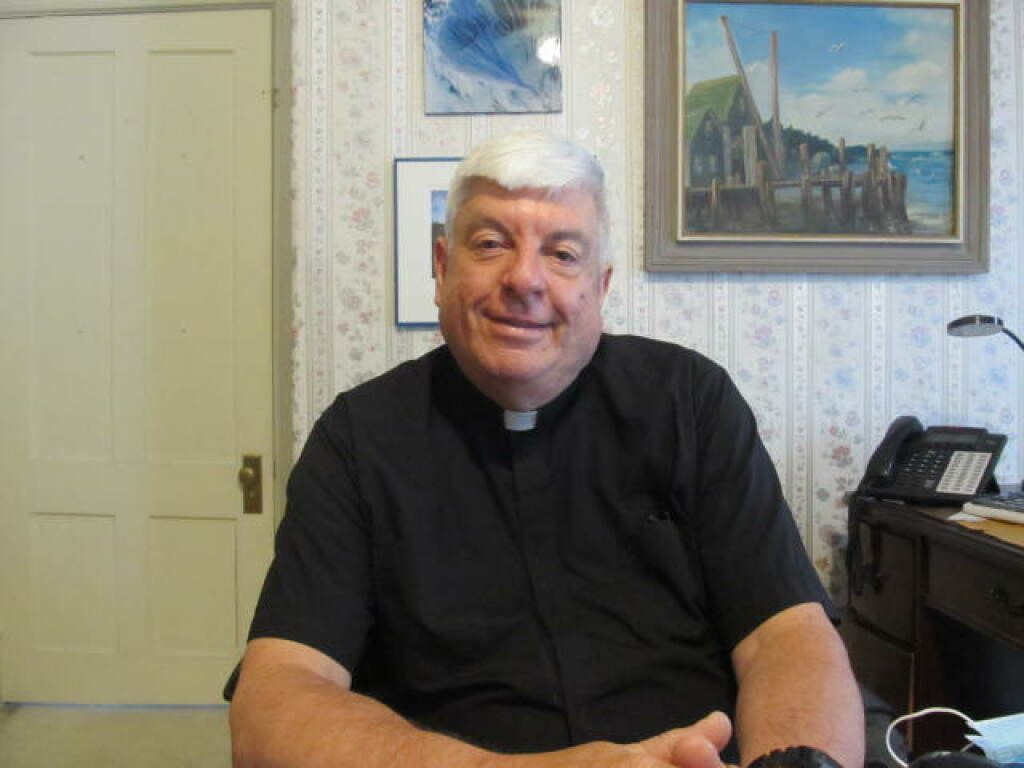 Imitating the Creator
Imitating the Creator
I recently came across a Native American creation story that comes from a tribe I never heard of, the Maidu Indians of California. Here’s how it goes… Earthmaker took some red clay, mixed it with water and carefully shaped man and woman. They were beautiful but unfinished, for they lacked hands. Earthmaker asked the other creatures what kind of hands they should have. The turtle said, “Like mine, so they can swim.” And the coyote spoke up, “No like mine, so they can run fast.”
Earthmaker thought and thought and then said, “Thank you all, but I’ve decided to make their hands like mine so that they can make things.” Since earthmaker’s hands were the pattern for human hands, women and men became the most beautiful of all creatures because they could create things with their hands.
The Maidu Indians knew what we have to remember. Our hands are godly in design so we should be making as God makes. They should not be hands that hold others back or hands that hold others down, “heavy” hands that prevent freedom, even the freedom to make mistakes. They should be hands busy making peace, not clenched in anger, but waving away injury in movements of pardon. As Earthmaker’s hands left fingerprints of beauty on all creation, our hands should be busy making our surroundings beautiful, clean and delightful.
At the end of today’s gospel, we have a beautiful image of God’s patience and mercy, as well as God’s desire to restore the magnificent beauty of all creation, including human beings. Remember that, when God wanted to create the ideal setting for human beings, it was a garden—the Garden of Eden. Unfortunately, human beings messed up the God-given quality of creation by thinking they knew better than God. So now, in today’s gospel it is a gardener who wishes to restore life and fruitfulness by creating the best possible conditions in which the fig tree can reach its full potential.
You can think of the much harsher first part of the gospel in these terms as well. Jesus calls us, especially during this Lenten season, to repent—to let go of all the things that are holding us back, ensnaring us, robbing us of our full beauty and dignity. And why wouldn’t he? He knows that when we choose sinful ways, when we turn to “lesser gods” as it were, seeking happiness which will never fully satisfy—well then, of course he’s going to call us, and to challenge us, to get back on the right path. Thus, during Lent, we are asked to consider what about us needs pruning, clearing away so that something better can grow in its place. And what needs fertilizing, so that we’re producing fully developed fruit, not a half-hearted, anemic, unproductive life.
Jesus speaks about a tower falling that killed some people in the process. That reminds me of the twin towers falling in New York City on 9/11. Do you think that those who died in that horrific disaster were more sinful than the rest of us? Of course not. But it sure got our attention. If such senseless loss of life could happen, well, life seems fragile, precious and to be cherished. Do you remember how church attendance shot up after that disaster?
With the daily images of cruel and brutal slaughter of innocent life coming out of Ukraine, we are being reminded once again of both the value, and the fragility of human life. We are distraught and angry that some human beings can treat other human beings so callously. And we admire the generous, and even heroic response, of those who want to help the wounded, the dying and the displaced.
Again, it’s its similar to the brutality of people like Pilate, whom Jesus mentions in today’s gospel. Evidently, people were taking part in a religious ceremony, offering sacrifices of animals. Pilate, for some reason, had his troops march in and slaughter those people, thereby mixing their blood with the blood of the animals! And it was only by chance—these people were in the wrong place at the wrong time. Just like 9/11. Just like Ukraine.
So again, life is both precious and precarious. And knowing that, Jesus says, is an invitation to look at the quality of our life at its depths, in terms of our relationship with God and with others. Don’t wait until the tower starts to fall or the mad assassins start killing. Make the effort, now, to let God’s word do what it was sent for: to prune away the dead stuff, and to fertilize the good stuff, so that we may be the radiant creation, the joyful heart, and the generous and creative hands that God intended us to be from all eternity.
You might also like
Father's Homilies




